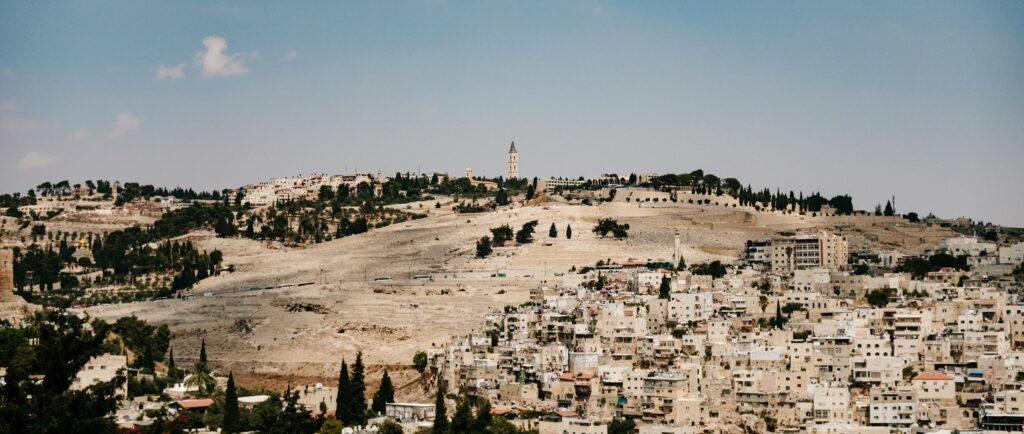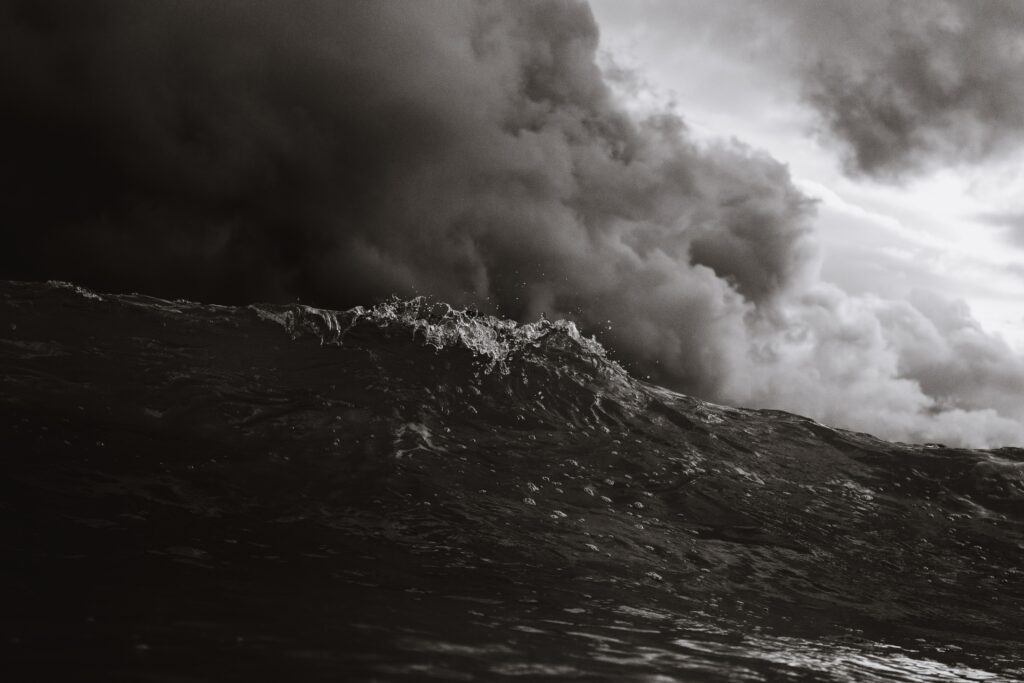
“Have faith in God,” Jesus answered, “Truly I tell you, if anyone says to this mountain, ‘Go, throw yourself into the sea,’ and does not doubt in their heart but believes that what they say will happen, it will be done for them. Therefore I tell you, whatever you ask for in prayer, believe that you have received it, and it will be yours.” Mark 11:22-24
Surely Jesus jests. Uses hyperbole. Something. Throw a mountain into the sea? With a command? Surely just a metaphor that you can do anything if you believe hard enough. But if that anything doesn’t include actually being able to throw a mountain into the sea, if that’s actually too hard, then the metaphor’s self defeating. I mean, I can’t actually ask for anything and be confident I’ll get it, right? Isn’t that just a ticket to self interested, greedy prayers? Grief and guilt for those whose prayers remain unanswered?
I presume for many Christians these words of Jesus have seemed uncomfortably unrealistic, to be passed over with a furrowed brow, because they long were for me. I have no idea how many have tried it, but I never hear of mountains uprooting themselves and flinging headlong into the ocean (I will neither confirm nor deny that as a child I attempted to move some trees by faith, since mountains as a rule have people living on them. But I can confirm that, if I had tried it, it didn’t work). But after being confronted by these words at a time of desperate prayer, they’ve now become precious to me. They’ve changed how I pray and relate to God; they motivate me to pray. I don’t believe in self interested, greedy prayer, but I do pray with confidence that God will answer.
The setting matters. Jesus is visiting Jerusalem, staying in a nearby village at night, travelling in each day over the Mount of Olives. He and his disciples are heading into the city in the morning. They’re standing in front of a dead fig tree. The evening before it was healthy, then Jesus cursed it. Now it’s dead. Disciples are stunned, so he says this stuff to them about prayer. He’s a few days away from being killed.
It’s all got to do with the Kingdom of God. The thing Jesus has been on about his entire ministry; that God’s good, just, merciful rule be established on earth in a people who belong to him and follow his ways. The Old Testament scriptures are full of promises that God would establish his Kingdom in Israel; full of promises that the Kingdom would be established in Jerusalem; promises that someone chosen by God would establish the Kingdom. And Jesus has just arrived in Jerusalem to do just that.
But something seems to have gone wrong to the disciples. Jerusalem, the holy city, should’ve been ready for Jesus. But it wasn’t. What Jesus found on arriving the day before was a city cold and dead towards God. The religious leaders, meant to be taking the lead in preparing hearts for God, instead cynically use his worship to exploit the poor and vulnerable. God became a way to make money, to pursue self interest. And it’s after seeing all this that Jesus, hungry and finding no figs on the tree, curses it. That the curse actually befalls the tree shocks the disciples because, I think, they knew what it meant. The fig tree is Jerusalem. Jerusalem is the fig tree. The fig tree had no fruit when Jesus was looking for some; Jerusalem had no spiritual fruit when Jesus came looking for it. And so, like the fig tree, Jerusalem is out. Judged. Rejected for the Kingdom.

That shocks and terrifies his disciples, because it sounds like God’s plans and promises have come undone. So Jesus says these words to them. Don’t lose heart. Only believe. Have faith in God. Truly I tell you, if anyone says to this mountain, ‘Go, throw yourself into the sea,’ and does not doubt in their heart but believes that what they say will happen, it will be done for them. This mountain. The mountain they’re standing on. The Mount of Olives. Because there’s a promise about that mountain too. Zechariah 14, using dramatic symbolism, prophesies judgement falling on Jerusalem but God providing a way of escape through the Mount of Olives… the Mount of Olives will be split in two from east to west, forming a great valley, with half of the mountain moving north and half moving south. You will flee by my mountain valley…
Yes, Jerusalem judged, but the Kingdom will still come. That way of escape from the judgement… the mountain hurled into the sea an even greater picture of a means of escape than it being split. And the Kingdom did come.
A few days later Jesus is arrested. He’s taken to be crucified, to die for us, that God’s judgement fall on him. That we can be a people who belong to him and live his ways. He’s arrested while praying on the Mount of Olives. His disciples, those who believe in him, are with him. They escape over the mountain.
The mountain hurled into the sea at Jesus’ command. Those who believe in him saved to belong to God. The Kingdom come. So if that happened, Jesus says, whatever else you ask for and believe will happen too. But not in some self interested, bless me Lord, gimme gimme gimme kind of way. Jesus is still talking about the coming of his Kingdom. For if the Kingdom came through the death of Jesus, it’ also still coming today. Still growing. People still turning to God, saved into living his way, impacting our hurting world. People finding life and wholeness and freedom and forgiveness in Jesus. And I believe that what Jesus is saying here is that God works to grow his Kingdom in people’s lives in response to the prayers of his people. That God actually does things in our world to grow and spread his good Kingdom in response to his people praying for those things and believing they’ve received it. Not self interested prayer but other interested prayer. God doesn’t want to work alone, he wants us to be involved. And the greatest way to be involved is to pray.
Praying is hard. I find it hard. In a world and a Church that increasingly defines success in terms of quantifiable results, praying feels useless. I mean, my prayers change me, change my heart, my attitude to and relationship with God – but what difference do they actually make out there? Jesus says they make a big difference. God grows his Kingdom in people’s lives and in communities by answering the prayers of his people that are offered in belief. My prayers may be frail, clumsy and stumbling; answers may not come according to my definition of quickly – I may not see the answers in my lifetime. Things might seem broken and defeated. No matter. That’s how it looked when Jesus spoke these words. I need to keep on praying, to persist, because Jesus is saying that this is what God responds to.
And because he’s hurled the mountain into the sea.
Mt. of Olives Photo by Adam Kring on Unsplash

